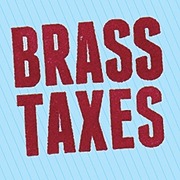Additional Common Questions
What do I do about crypto and NFTs on my taxes?
The world of cryptocurrency is evolving fast, and there's not a lot of clear guidance out there. We'll help you sort it out.
Last updated on 14 Nov, 2025
A lot of folks have started to get into cryptocurrency in the past year or so. For many people that means just buying some Bitcoin or Ethereum to see what this is all about. On the other hand, some of our clients have been riding the blockchain for years and are earning a living entirely through crypto, NFTs, and Defi. Others are being paid in crypto instead of dollars.
Needless to say, there's a lot going on in this arena and it can feel like uncharted territory when it comes to taxes. Each of these situations can lead to different ways of handling the profits and losses from your crypto transactions, but we can break that down for you in our appointment or in a consultation.
That said, there's one really important thing that everyone in crypto needs to do:
Track Your Coins!
The most important thing to know, whether you're just dipping your toes in or well into the deep end, is that you need to track all of your crypto transactions, from your very first transaction (even if that was years ago) to your most recent. Many of you may be like, duh, the blockchain tracks everything! But for tax purposes, most crypto wallets are not tracking one extremely important piece of information: the basis.
What's the basis? It's the amount the coin was worth in US dollars at the time you bought it or that it came into your possession (by purchase, gift, mining, staking, sale of an NFT, hardfork, airdrop, etc.).
Why does it matter? Think of it like a stock sale. You need to know how much you bought the stock for in order to know what your profit or loss is when you sell it. Same thing here.
How to Track
There are a ton of third-party apps that will take the data from your wallet and figure out your basis. Many will even send you all the info you need for taxes.
We recommend that our clients use CoinTracking.info (we don't have a deal with them, we just like it, and it's free for the first 200 transactions).
Just set up an account with CoinTracking.info
Connect your account to all your various wallets and exchange accounts
Periodically pop in there to review how things are going and fix any entries showing up incorrectly
Then at tax time, use the tax report section to pull the data we need to do your taxes using these settings:
Country: United States
Method: FIFO
Tax Year: whatever year you are working on
Calculate Gain Only
Long Term After 12 Months
And finally, under “advanced settings” check the switch for “3rd currency fees” - this is not default and needs to be done
What about NFTs?
Similar to everything else with crypto, there's a lot of variation here depending on what you're doing with NFTs, whether it's making or minting them, buying or selling them, or dealing with what's left over after buying and selling.
Whether you're an artist who just sold your first NFT this year or someone who is minting like you're the US Treasury, we'll talk you through the tax side of things. Just make sure every transaction surrounding any of your NFTs is being tracked (see the section above).
Have questions or want to get more detailed information about your specific situation? Book a consultation.

